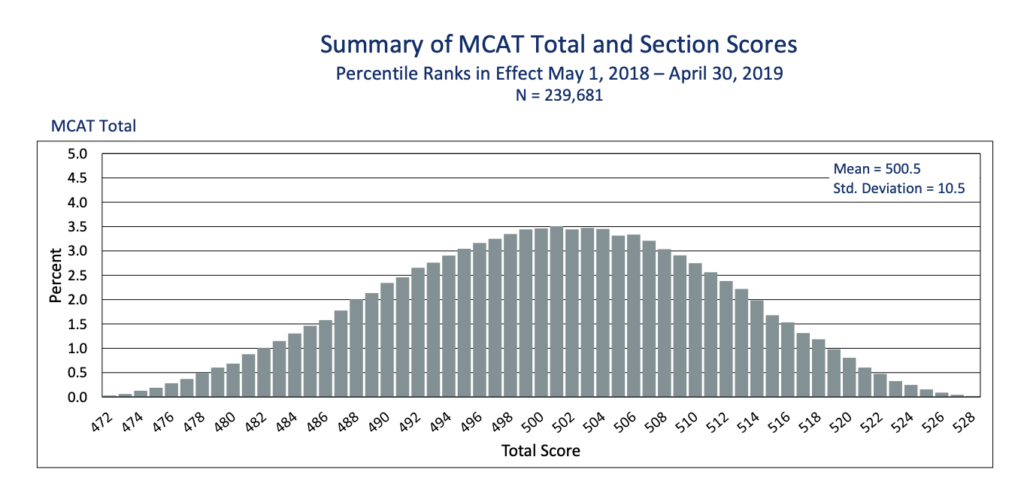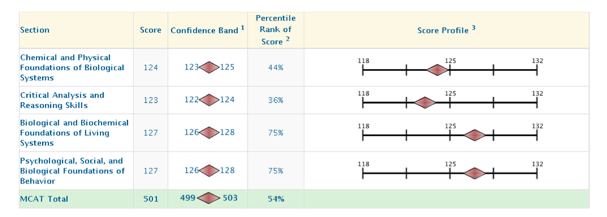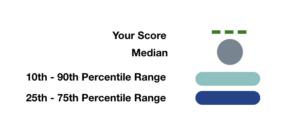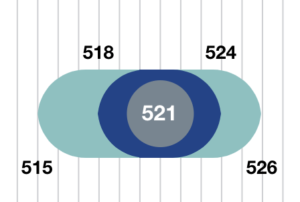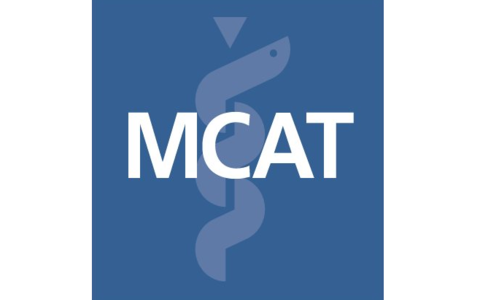 The MCAT is the standardized test used for medical school admissions. While other factors – including grades, clinical experience, shadowing, research and recommendations – are also considered, the MCAT has a unique role in the evaluation process because it provides a robust assessment of a student’s knowledge of science and social science, as well as skills in critical analysis.
The MCAT is the standardized test used for medical school admissions. While other factors – including grades, clinical experience, shadowing, research and recommendations – are also considered, the MCAT has a unique role in the evaluation process because it provides a robust assessment of a student’s knowledge of science and social science, as well as skills in critical analysis.
As a result, the recent limitations in access to the MCAT caused by COVID-19 are having a significant impact on both students and the medical school timeline. This blog discusses changes in the MCAT for the next few months, and how best to maximize your performance.
MCAT Registration
The MCAT is administered at test centers operated by Pearson VUE. Due to the Coronavirus, MCAT administrations were cancelled from March 27 – May 21. The MCAT became available again on May 29, and will be offered through September 28, which concludes the 2020 testing year. Most – but not all – states have resumed MCAT availability, in response to government regulations based on health considerations.
The feasibility of safely administering the MCAT remains very fluid. As a result, the AAMC will notify students registered for the MCAT at least 3-4 weeks in advance if their scheduled appointments are “at-risk,” and 10 days before if their test is cancelled. For the test dates on June 27 and 28, registrants were notified June 3 if their test appointments are “at-risk,” and will receive an email by June 17 if their test is cancelled.
You can find up-to-date information about the availability of the MCAT at local test centers here.
Changes in the MCAT
In order to increase the availability of the MCAT, the AAMC has instituted the following changes:
- Shorter test: the test has been shortened from a “seated” time of 7 hours 30 minutes to 5 hours 45 minutes
- Three test appointments per testing day: 6:30am, 12:15pm, 6:00pm
- Three additional test dates: June 28, September 27, September 28
- Safety precautions: workstations will be 6 feet apart, and students must wear face masks.
Test Structure
The charts below show the traditional amount of time and number of questions for the four sections of the MCAT, as well as the revised format for May 29 – September 28. The shortened test will include the same number of questions that are typically scored.
Note that the section “Psychological, Social, and Behavioral Foundations of Behavior” was added to the MCAT in their revised 2015 test, in recognition of the important role of social science and holistic approaches to patient treatment. For a detailed discussion of the content of the four subsections, as well as the MCAT test score report, see our previous blog.
MCAT Score Scale
The shortened MCAT will have the same scoring system: each of the four sections will be scored individually, from 118 to 132, with a midpoint of 125. Scores are combined to create a total score ranging from 472 to 528, and both the mean and median score is 500. The test is not graded on a curve, and there is no penalty for wrong answers.
Below is the distribution of total scores for the MCAT taken between May 1, 2018 and April 30, 2019. Other years have been comparable.
MCAT Score Report
The MCAT score reports provide details on your test performance, and combine MCAT scores, percentile ranks, confidence bands, and score profiles. See the sample score report below.
What MCAT Scores are Competitive for Each Medical School?
The MSAR (Medical School Admission Requirements) on the AAMC website provides extensive information on the profile of accepted students to each medical school.
As an example, the diagram below shows various percentiles for accepted students to Columbia University College of Physicians and Surgeons. The median MCAT score for the most recent year was 521; the 25th – 75th percentile range (often referred to as the “mid-50th percentile) was 518-524; and the 10th-90th percentile range was 515-526. The top 25th percentile is considered very competitive, so that would mean a score of between 524-528 for Columbia.
Impact of MCAT Changes on Medical School Admissions Timeline
In recognition of the greater challenges faced by medical school applicants this year, AAMCAS has extended the date when applications will be released to medical schools by two weeks, to July 10. This provides students with more time to complete their primary application, take the MCAT exam, and begin to prepare secondary essays. We still recommend that you submit your application as soon as possible, because your transcript needs to get verified before your application can be submitted to medical schools, and the entire med school evaluation process occurs on a rolling basis.
Applying to medical school is a long and challenging process—especially today. For more information or guidance regarding the MCAT, or any other aspect of the med school admissions process, contact Collegiate Gateway – we’re always happy to help!


